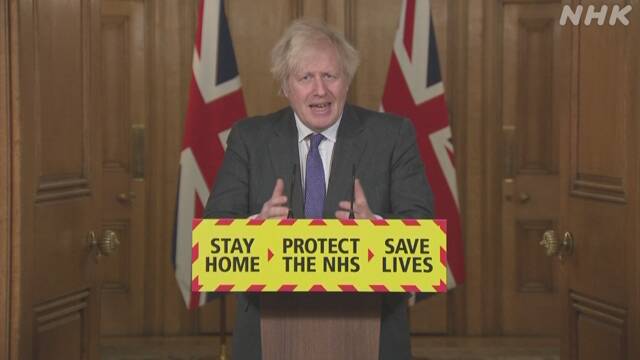The British government has released an early analysis that mutated new coronaviruses may have a higher risk of death than traditional viruses.
However, at this point, there are many uncertainties in the data, and further investigation is needed.
In the United Kingdom, the spread of the mutant coronavirus, which is said to be highly infectious, is serious, and more than 1,000 people are reported to die every day.
At a press conference on Wednesday, Prime Minister Johnson said he was "reported that he might be involved in increasing mortality" about the mutant virus, saying he may be at higher risk of dying than traditional viruses. The analysis result was clarified.
The chief scientific adviser, Balance, who attended the meeting, analyzed the data of infected people and assumed that 1000 people in their 60s were infected, while the conventional virus killed about 10 people, whereas the mutant virus I explained that it could be 13 to 14 people.
However, the analysis is early and there are many uncertainties in the data at this point, and further investigation is needed.
On the other hand, the vaccine currently being inoculated is said to be effective against mutant viruses.
WHO "At this time, there is no tendency for the risk of death to increase"
Regarding the announcement by the British government, Mr. Bankerkov, who is the technical manager for the new virus at WHO, said at a regular press conference on the 22nd that he did not know the details of the announcement and said, "Inpatients are hospitalized due to the increase in infected people. As the burden on medical institutions increases, it is possible that doctors and nurses will not be able to handle patients and the number of deaths will increase. "
Ryan, who oversees crisis response, said, "At this point, there is no tendency for mutant viruses to have a higher risk of dying than traditional viruses. If more people are infected, more people will die. That's it. "

